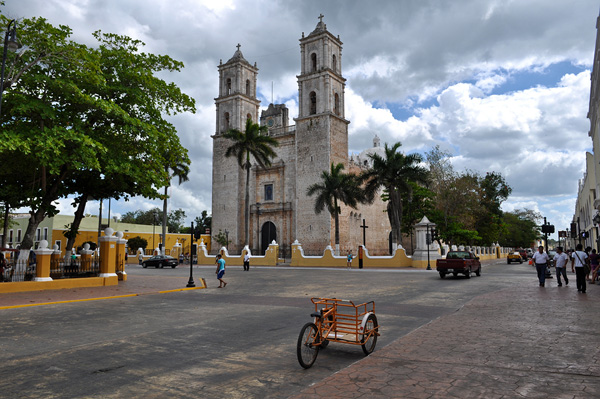
Merida, the vibrant capital of the Mexican state of Yucatan, is a city that offers a variety of public transportation options for both locals and expats. These include buses, colectivos (shared taxis), taxis, and Uber. The city’s public transportation system is generally reliable and affordable, making it possible for expats to live comfortably without a car. However, the convenience and comfort of each mode of transportation can vary, and it’s important to understand the nuances of each to navigate the city effectively.
Buses
Merida’s bus system is the most common form of public transportation in the city. Buses run on a variety of routes, covering most areas of the city and even extending to nearby towns and archaeological sites. The fare is usually around 8 pesos (about 40 cents in USD), making it a very affordable option. However, buses can get crowded during peak hours, and the lack of air conditioning can make for an uncomfortable ride in the city’s tropical climate. The buses are generally safe, but it’s always a good idea to keep an eye on your belongings, especially in crowded conditions.
Colectivos
Colectivos are shared taxis that run on specific routes, similar to buses. They are a popular choice for short trips within the city, as they are faster and more comfortable than buses. The fare is slightly higher, usually around 10-15 pesos (50-75 cents in USD), but still very affordable. Colectivos are generally safe, but as with buses, it’s advisable to be aware of your surroundings and keep your belongings secure. One downside of colectivos is that they can be hard to find if you’re not familiar with their routes and pick-up points.
Taxis and Uber
Taxis and Uber are widely available in Merida and are a convenient option for getting around the city. Taxis can be hailed on the street or booked through a taxi stand or hotel. Uber can be booked through the app, which is handy if you don’t speak Spanish or are unsure of your destination. Both taxis and Uber are generally safe, but it’s always a good idea to check the driver’s ID and make sure the car matches the description on the app. The cost of a taxi or Uber ride can vary depending on the distance and time of day, but it’s usually around 30-50 pesos (1.5-2.5 USD) for a short trip within the city.
Walking
Merida is a walkable city, especially in the downtown area where many of the city’s attractions are located. The city’s streets are generally safe and well-lit, and the locals are friendly and helpful. However, the city’s tropical climate can make walking uncomfortable during the hot midday hours, so it’s best to plan your walks for the cooler morning or evening hours. Also, be aware that sidewalks can be uneven and traffic can be heavy, so always be cautious when crossing the street.
In conclusion, Merida’s public transportation system is generally reliable, affordable, and safe, making it possible for expats to live comfortably without a car. However, each mode of transportation has its pros and cons, and it’s important to choose the one that best suits your needs and comfort level.Expats talk about Public Transportation in Merida
“I am living in North Merida, about 20 min from Progreso and 20 min from centro. As far as cabs being expensive – there are 2 types, zonas and taximetros, the zonas do not use meters and are for longer trips, pretty much start at 50 pesos. Taximetros are metered and are for short hops. The zonas hang out around the malls, centro, tourist places etc. So are easy to get, the metros mostly cruise around and have to be hailed. If you take a metro cab to another zone I imagine it could be a little pricey. Can’t remember if I ever used a cab in Campeche but if it is anything like Chetumal then yes, Merida is higher. Chetumal has 1700 cabs and for 25 pesos or less you can pretty much go anywhere in the city. However they may pick up other folks along the way, which normally is fine but can be a bit dangerous,” commented an expat living in Merida.


